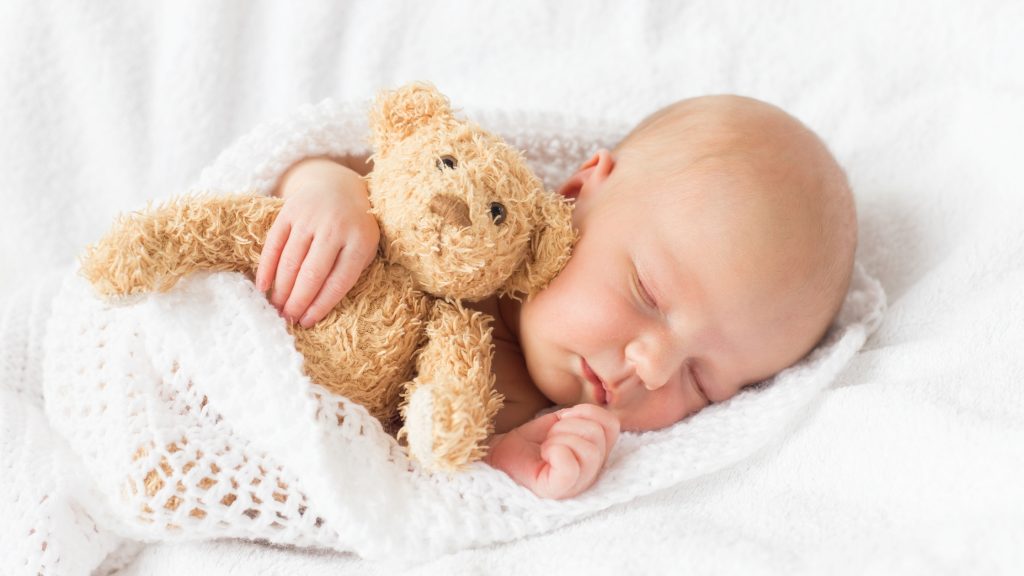Do Newborns Dream?

Adults are most likely to dream during rapid eye movement (REM) sleep. While dreams can happen in other sleep stages, REM sleep is the most common time for adults to dream. For children, REM sleep may start before birth. Brain waves that resemble REM sleep waves have been measured inside the womb between 25 and 28 weeks.
Babies spend about half of their sleeping time in REM sleep, so the next logical question is if babies can dream.
Do Newborns Dream?
The truth is researchers do not know if babies can dream. Usually, the only way you know if somebody was dreaming is if they wake up and tell you about it, but because babies cannot tell us about their dreams, there is no concrete evidence one way or the other.
While some researchers believe the babies do dream, other scientists say the babies do not have the developmental capability of the abstract thinking that one needs to dream. However, if babies were to dream, their dreams would likely be very similar to what they experience when they are awake. The dream may be a collection of sensations or images of familiar faces.
Basically, just as adults use REM sleep to process their day, an infant’s brain can do the same thing, except it is not as advanced yet. Babies are also very active during REM sleep. They may twitch, Smile, or laugh during their sleep because this is when the baby’s brain creates new pathways and they learn how to use their muscles.
While babies don’t dream like we do, they likely have some sort of dream experience. The good part about not being able to dream is not having nightmares. Even if your baby cries out or twitches with their whole body, they’re probably not having a nightmare as an adult would. They may simply be processing a loud noise or event that may have startled them during the day. The truth about babies dreaming is still inconclusive, but because they spend so much time in REM sleep, it’s likely they do dream about something.